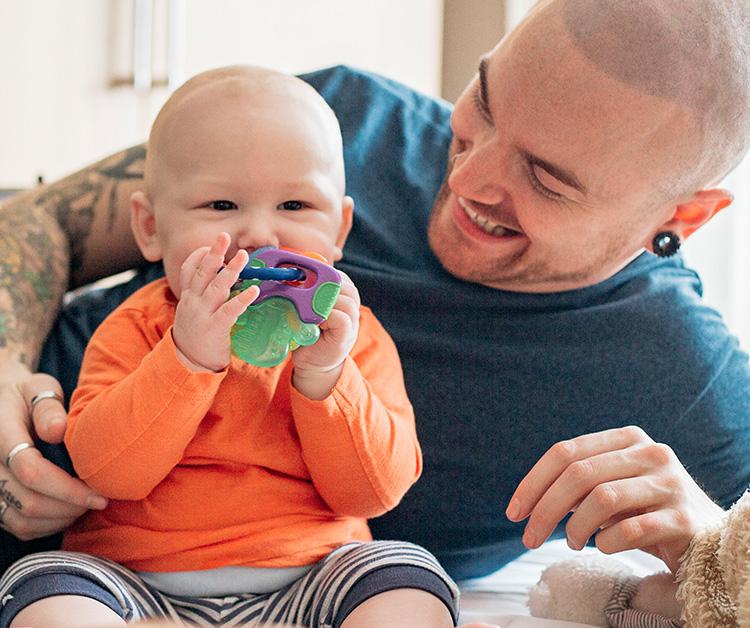
Teething isn’t fun for anyone — you would cry too if new teeth were trying to poke their way through your sensitive gums. While you can’t predict exactly when teething will start for your baby, most begin teething around 6 months.
You would cry too if new teeth were trying to poke their way through your sensitive gums. While you can’t predict exactly when teething will start for your baby, most begin teething around 6 months.
All babies are different though, so be on the lookout for teething indications at any age from 3 months up until 3 years old, According to WebMD
Your baby could be suffering from painful gums if they show any of these behaviors:
Luckily though, there are some simple things you can do to ease the pain. Here are some of the best ways to keep your baby (and their gums) happy and (relatively) pain-free.
Using a clean finger, gently rub your baby’s gums. About 2 minutes of massage at a time can help ease the pain. If you don’t want to stick your fingers directly on their gums, you can also use a gauze pad.
If your baby is chewing on solid objects, it’s because it feels good, and they’re on track to easing teething. Help them out by providing safe objects to chew on. Chill teething rings in the fridge and consider buying a teething necklace or toy.
If your baby’s old enough to eat solid foods, try some age-appropriate ones. Make sure you give them right-sized pieces and keep an eye on them at all times to avoid choking hazards.
Excessive drool from teething can irritate your baby’s chin and cause nasty rashes or even more discomfort. To avoid chin and face rashes, keep a towel handy to mop up the extra drool, and pay special attention to keeping the drool under control.
Cold objects can soothe your baby’s fiery, inflamed gums. Just make sure not to give them frozen solid teething rings or other frozen objects, which can hurt those delicate baby gum.
Try a washcloth or refrigerated teething rings to provide relief.
It’s best to consult your baby’s doctor about medication to help relieve pain from teething.
Listen to your baby and pay attention to mood changes for indications that the teething is getting worse. If your baby develops a fever, diarrhea or other indications of significant discomfort, get in touch with your doctor. Although researchers insist that teething only causes issues in the mouth and gums, fever or discomfort could be indications of an unrelated illness.
The bright side? The pain means your baby is growing up, and is on their way to a set of healthy teeth.
All information on Enfamil, including but not limited to information about health, medical conditions, and nutrition, is intended for your general knowledge and is not a substitute for a healthcare professional's medical identification, advice, or management for specific medical conditions. You should seek medical care and consult your doctor or pediatrician for any specific health or nutrition issues. Never disregard professional medical advice or delay seeking medical treatment, care, or help because of information you have read on Enfamil.